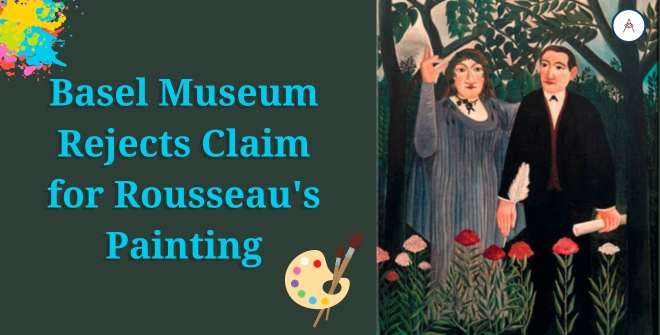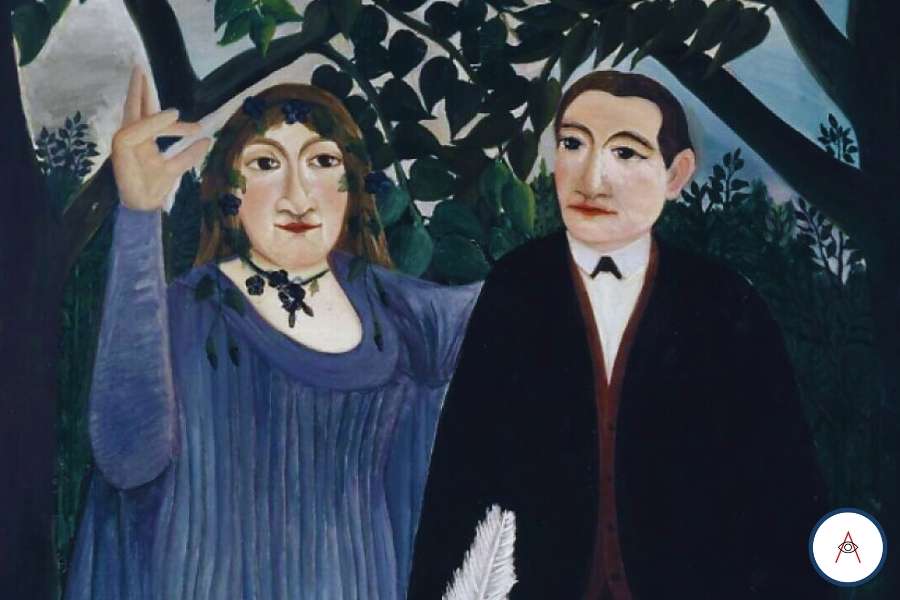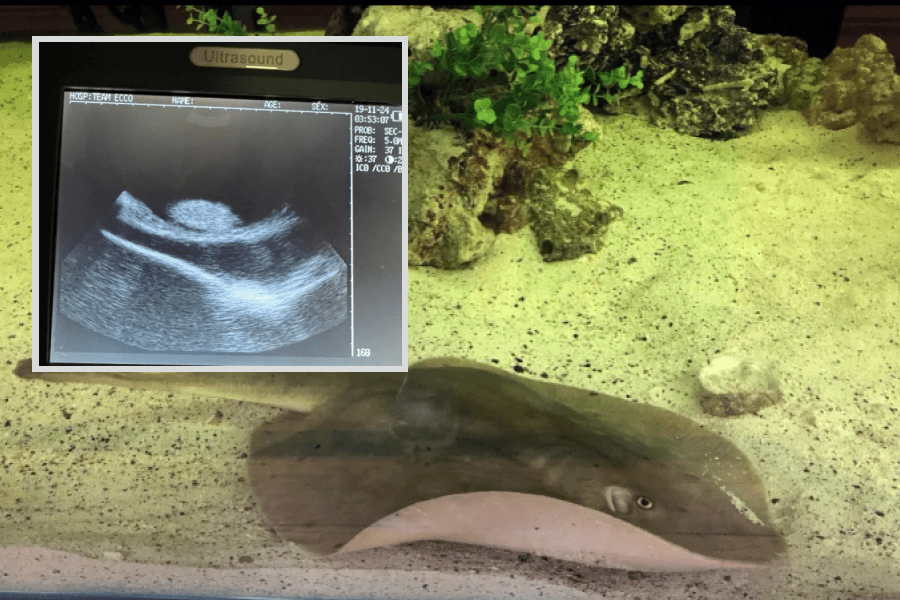A 1940 artwork by Henri Rousseau that the Kunstmuseum in Basel felt forced to market has been refused back.
Discover the latest controversy as Basel Museum Rejects Claim for Rousseau’s Painting.
“Fair and equitable” remuneration is currently the subject of discussions.
According to the Basel Kunstmuseum on Tuesday, the artwork in question is La Musee Inspirant Son Poet (Music That Inspires the Poet), which was created by Henri Rousseau in 1909.
The artwork was acquired by the museum from Countess Charlotte von Wessedhalen in 1940.
Table of Contents
In a statement released on Tuesday, the museum said that representatives of the Swiss organization are currently in negotiations with the descendants of the piece’s original owner,
a Swiss-German collector who fled to Berlin during World War II and is now the work’s claimant.
The heirs of the work’s previous owner, a Swiss-German collector who lived in Berlin and managed to flee during World War II, are the claims, according to a statement released by the museum on Tuesday.
Swiss officials are currently in discussions with these parties.
Felix Uhlmann, the director of the museum, stated that to resolve the contentious acquisition, the museum is looking for a “fair” settlement of the initial claim as well as an arrangement to “compensate” Charlotte von Weissdalen’s heirs.
In 2021, a claimant’s lawyer contacted the museum to request its restitution.
The Kunstmuseum’s Art Commission then looked into the painting’s acquisition history.
In a June 2022 meeting, the outcome was shared with the claimant’s lawyers.
Representatives of the claimant have requested that the artwork be returned, according to the museum.
In 2022, Restitution is Requested
The historical details have been verified by the Basel Museum’s Provenance Research Department. To talk about potential fixes, a working group was established.
In a June 2022 meeting, the outcome was shared with the claimant’s solicitors.
Representatives of the claimant have requested that the artwork be returned, according to the museum.
The sale of a picture by Charlotte von Wessedhalen, attributed to Henri Rousseau, is one of several instances in Switzerland where sales of “repressed property” are handled, according to the Kunstmuseum.
These sales represent the immigration from Nazi Germany to a non-occupied foreign nation between 1933 and 1945.
Sale for Financial Purposes
The painting was sold while Jewish refugee Charlotte von Wiesdahlen was in Switzerland, having escaped Nazi Germany.
If not for the persecution by the Nazis, he would not have had to sell it for financial reasons.
In the report of the Art Commission, it was stated that the sale price was “low, even unreasonably low.”

At the time of purchase, the Kunstmuseum paid CHF 12,000 for the picture, even though “the middle dealer and the museum director knew that at least CHF 20,000 would have been appropriate”.
The picture should have brought at least CHF 40,000, if not CHF 60,000, on the free market in 1940.
“Fair and Equitable” solution
According to the Kunstmuseum, this picture has no legal claim to compensation.
Through the Washington Principles, the museum promotes discussions for “just and equitable solutions”.
According to Felix Uhlmann, chairman of the Art Commission, the talks have started with the aim of deciding on a “reasonable” amount of payment, which would probably stay private.
Following the Washington Principles, both the Kunstmuseum and the Fine Arts Commission do.
According to him, these guidelines ought to govern the resolution of specific instances in which such works of art were sold under duress.
See also Bill Hayes: Unveiling the Enigma of His Passing
There is one exception to the rule that such art can be restored.
This kind of exemption is “neither clear nor justified” in the instance of Henri Rousseau’s artwork, according to the museum.
In his opinion, these guidelines ought to be followed when deciding on certain situations involving the sale of such artwork that was obtained under pressure.
There is one exception to the rule that such art can be restored.
As per the museum’s statement, Henri Rousseau’s picture is “neither clear nor justified” to warrant such an exception.



